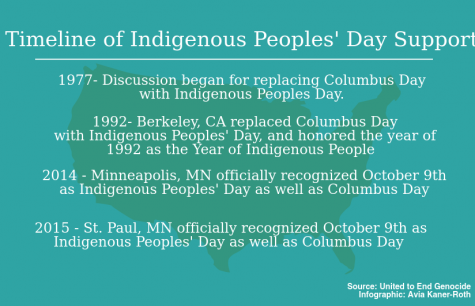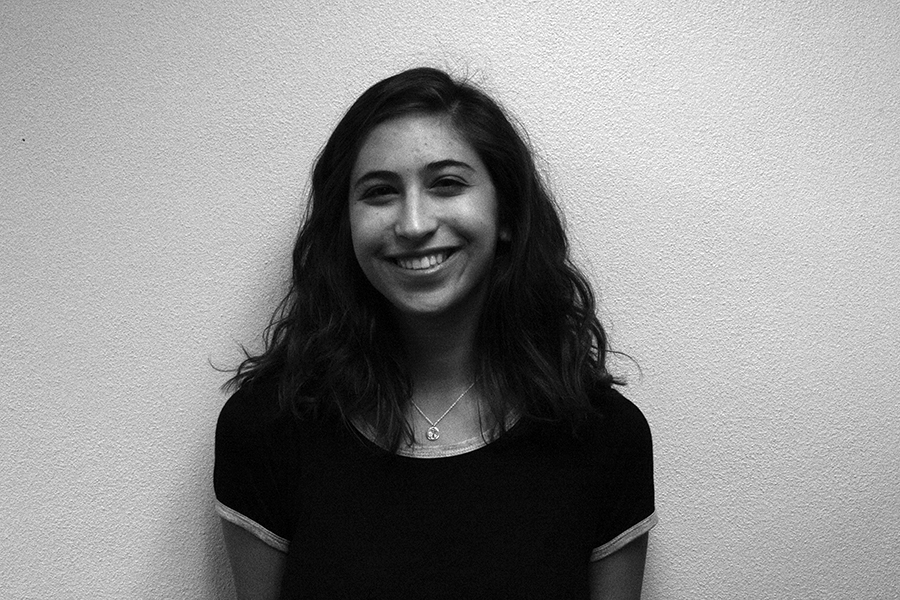Columbus Day celebrates our national shame
National holiday celebrates the discrimination of our Native citizens
October 11, 2017
Since 1937, the second Monday of October has been celebrated nationwide in honor of Christopher Columbus, the man named to have discovered the new world, instead of acknowledging the atrocities Columbus committed and the ones that followed after his death.
Columbus was chronicled extensively for the duration of his reign, each report more atrocious than the last. His acts of violence and utter disdain for the humanity of Natives should be labeled and remembered in infamy, not in a national celebration for a discovery that should not even belong to Columbus.
Columbus absolutely destroyed the native population through the spread of disease and use of unnecessary and intense violence against the native people. Columbus enslaved thousands of Native people and sent hundreds to Spain on an unforgiving voyage that killed two fifths of the slaves sent.
Even without the vicious brutality of the native population, the disease the Europeans brought across the ocean wiped out almost 90% of the native population, due to the native community’s lack of immunity to animal pathogens Europeans possessed. Millions of Native people were wiped out by diseases like measles, cholera and even the bubonic plague. When Columbus first landed in the Bahamas in 1492, historians estimate there were over ten million natives living in what became U.S. territory. Less than 400 years later, that number was diminished to under 300,000. This devastation of the native community should not be celebrated, but remembered as a another notch in America’s tarnished history.
Minneapolis and Seattle became America’s first major cities to follow in the footsteps of Berkeley,California, and officially recognize Indigenous Peoples’ Day in 2014, a day that celebrates the lives and culture of the Indigenous people of America. Since Berkeley, over 30 cities and some states, including the State of Minnesota, instated Indigenous Peoples’ Day, to be most commonly celebrated the ninth of October, to combat Columbus Day.
Indigenous Peoples’ Day began as a counter-celebration, a protest of Columbus Day. The International Conference on Discrimination Against Indigenous Populations in the Americas met in 1977 to discuss replacing Columbus Day. Despite this, actual traction didn’t occur until 1992, the 500 year anniversary of Columbus’ journey, in Berkeley, California. The Berkeley City Council was convinced to replace the celebration of a militant warrior who destroyed villages and lives with a new celebration to honor the Indigenous sacrifice, to be known as the Day of Solidarity with Indigenous People, and the year of 1992 to be honored and known as the Year of Indigenous People.
From our nation’s beginning, Americans have capitalized off of the blatant disregard of people they didn’t view to be on the same level of humanity as them. To continue the celebration of the man who kickstarted one of the worst genocides of the native population is only adding an annual insult to incredible injury.




